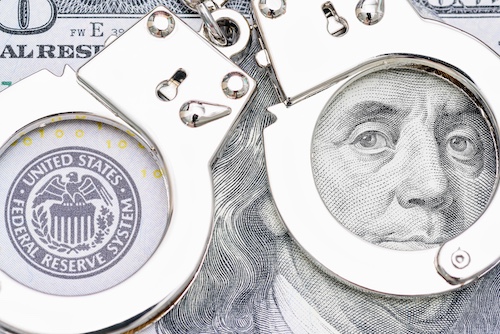How a Criminal Defense Attorney Helps Navigate Underage Drinking Charges
Understanding the legal landscape surrounding underage drinking is crucial for minors and their guardians. As experienced criminal defense attorneys, our firm specializes in navigating the complexities of underage drinking laws, offering expert guidance on potential legal consequences and effective defense strategies. With years of experience defending minors charged with alcohol-related offenses, we provide a comprehensive understanding of how these laws can affect young lives and future opportunities. Avoiding a criminal conviction is essential, as it can lead to severe penalties such as fines, community service, and long-term repercussions like driver’s license suspension. Legal guidance is crucial in mitigating these outcomes.
Legal Consequences of Underage Drinking
Understanding the legal consequences of underage drinking is essential for minors and their families. Receiving a drinking ticket—a common outcome for underage alcohol offenses—can lead to serious legal and personal repercussions that may affect a young person’s future.
Criminal Charges and Classification
Underage drinking is typically classified as a misdemeanor. In Texas, for example, such offenses are considered a Class C misdemeanor. While classifications and penalties vary by state, a drinking ticket for a first-time offense can still result in meaningful consequences. A common charge, Minor in Possession (MIP), occurs when a minor is found with alcohol and can impact educational, employment, and licensing opportunities long-term. Repeat offenses often carry harsher penalties.
Common Penalties for a Drinking Ticket
Penalties associated with a drinking ticket or underage drinking charge may include:
-
Fines: Monetary penalties can range from $100 to $500, depending on the state and specific offense.
-
Community Service: Courts may require completion of community service hours as part of sentencing.
-
Alcohol Awareness Programs: Attendance at alcohol education or counseling programs may be mandated.
-
Driver’s License Suspension: A minor’s driver’s license may be suspended or revoked, especially in repeat cases or where public safety was at risk.
-
Jail Time: Although less common for first-time offenders, jail time is possible in more serious or repeated cases.
-
Penalties for Adults: Individuals who furnish alcohol to minors can face criminal charges, fines, and may be held liable for any resulting harm caused by intoxicated minors.
Recognizing the implications of a drinking ticket and related offenses is crucial. By understanding the potential legal outcomes, minors and their guardians can make informed decisions and take appropriate action when facing underage drinking allegations.
Underage DUI/DWI Considerations
Understanding the implications of underage DUI/DWI is vital for minors and their families. Drunk driving among minors can lead to severe legal consequences, including DUI charges that carry serious penalties and long-term impacts on a young person’s driving record and insurance rates. The laws surrounding these offenses can lead to severe consequences that affect young lives.
Zero Tolerance Laws
Zero tolerance laws apply strictly to underage drivers. These laws prohibit anyone under the legal drinking age from operating a vehicle with any detectable amount of alcohol in their system.
- Blood Alcohol Content (BAC) Limits for Minors: For minors, the legal BAC limit is 0.00%. Any measurable amount can result in serious charges.
- Serious Charges: If caught driving with any alcohol in their system, minors face immediate legal action, including fines, potential arrest, and the loss of driving privileges. This underscores the severity of DUI laws and the significant impact on a young person’s ability to drive legally.
Enhanced Penalties for Driving Under the Influence
Minors charged with DUI face harsher penalties than adults. The legal system treats these offenses seriously to deter underage drinking and driving.
- Driver’s License Suspension: First-time offenders may face a driver’s license suspension of up to one year. Repeat offenders can expect longer suspension periods.
- Impact on Insurance Costs: A DUI can lead to increased insurance premiums, making it more expensive to maintain coverage.
- Differences in Penalties for Subsequent Offenses: Penalties increase with each subsequent offense. Subsequent convictions lead to longer suspensions and higher fines, along with mandatory alcohol counseling.
Understanding these laws and their consequences is crucial for minors. Knowing your rights and the potential legal outcomes can help in making informed decisions. If you or someone you know is facing underage DUI/DWI charges, consider seeking legal advice to navigate the situation effectively.
Legal Variations and Special Circumstances
Understanding the legal variations and special circumstances surrounding underage drinking is essential for minors and their guardians. In Texas, for example, there are exceptions that allow minors to legally consume alcohol when accompanied by a parent, legal guardian, or adult spouse. Laws differ significantly from state to state, affecting how underage drinking is treated legally.
State-Specific Laws and Penalties
Each state has its own laws regarding underage drinking. Some states enforce strict penalties, while others may offer more leniency.
- Variations in Penalties: Some states impose heavy fines for first-time offenders, while others may opt for lighter penalties, such as community service.
- Minimum Drinking Age: The minimum drinking age in Texas is set at 21 years. This age limit has changed over the years due to legislative efforts to reduce underage drinking and related issues like drinking and driving. There are certain exceptions to this law, illustrating the nuances of underage drinking regulations in the state.
- Tolerance Laws: Certain states have tolerance laws that allow minors to consume alcohol under specific conditions, such as being in a private residence with parental consent.
- Legal Distinctions: The law often distinguishes between possession and consumption. For example, possessing alcohol may carry different penalties than consuming it.
Additional Legal Considerations
Several factors can complicate underage drinking cases further.
- Using Fake IDs: Minors caught using fake IDs to purchase alcohol may face additional charges, which can lead to severe consequences, including fines, criminal records, potential felony prosecution, and the loss of driving privileges. Misrepresenting one’s age using a fake ID is a serious offense with strict punishments.
- Liability for Adults: Adults who provide alcohol to minors can be held legally responsible. This includes parents, guardians, or anyone else who furnishes alcohol to a minor.
- Public Intoxication: Minors found visibly intoxicated in public may face charges of public intoxication, which can lead to fines or community service.
Understanding these variations and circumstances can help minors and their families navigate the legal landscape more effectively. It is important to seek legal advice to understand the specific laws and potential defenses applicable to each situation.
Long-Term Impacts and Considerations
Understanding the long-term impacts of underage drinking is essential for minors and their families. Legal issues related to underage drinking can have lasting effects on various aspects of a young person’s life. Charges related to alcohol offenses, particularly for underage individuals, can show up on a background check, affecting applications for college, jobs, or housing.
Future Consequences
Underage drinking can lead to significant future consequences. A conviction may affect educational and employment opportunities. Many colleges and employers conduct background checks. A criminal record can hinder admission to schools or job applications.
A DUI conviction will also become part of the individual’s driving record, which can affect future insurance costs and driving privileges.
Additionally, having a criminal record can impact housing and financial prospects. Landlords may deny rental applications based on a criminal history. Financial institutions might view a record as a risk factor for loans or credit.
Maintaining a clean criminal record is vital for future endeavors. A conviction may limit options and create barriers in personal and professional life.
Legal Defense Options
Minors facing charges for underage drinking have legal defense options. One possibility is deferred adjudication. This option allows first-time offenders to complete certain requirements to avoid a conviction. Successful completion can lead to the dismissal of charges.
However, pleading guilty to underage drinking charges can have significant consequences. It can affect a minor’s ability to have their record sealed and may lead to harsher repercussions, including the requirement to serve community service time.
Securing legal representation is crucial. An experienced attorney can guide minors through the legal process. They can help assess the best defense strategy, whether to plead guilty or contest charges.
Understanding the implications of a conviction is essential. Minors and their guardians should consider the potential long-term effects when facing underage drinking charges. Seeking professional legal advice can provide clarity and support during this challenging time.
Contact Us for Expert Legal Assistance
If you or someone you know is facing charges related to underage drinking, it is essential to seek legal help. Underage drinking can be considered a criminal offense, leading to serious consequences such as fines, counseling, and potential jail time. The Cowboy Law Group is here to provide support and guidance through this challenging time.
Why Choose Us?
- Experience: Our team has extensive experience in handling underage drinking cases. We understand the laws and can navigate them effectively.
- Personalized Attention: We treat each case with care, ensuring that you receive the attention you deserve.
- Proven Strategies: We have successfully defended many clients against underage drinking charges, using strategies tailored to each situation.
How We Can Help
- Free Consultation: Contact us for a no-obligation consultation. We will discuss your case, answer your questions, and outline your options.
- Case Evaluation: We will evaluate the details of your case to determine the best course of action.
- Legal Representation: If you choose to work with us, we will provide strong legal representation throughout the process.
- Furnishing Alcohol: We offer legal assistance to adults charged with furnishing alcohol to minors, helping you understand the potential legal consequences and working to mitigate misdemeanor charges and fines.
Take Action Now
Don’t wait until it’s too late. Adults who provide alcohol to minors can be held liable for any damages resulting from incidents caused by intoxicated minors. Contact the Cowboy Law Group today. Protect your rights and future by getting the legal assistance you need. Contact us to schedule your consultation 832-326-2932






